Explore the Best AI Image Gallery

Beyond the Canvas: Exploring the Ethical Landscape of AI-Generated Media
The realm of creativity is undergoing a profound transformation fueled by advancements in artificial intelligence (AI). AI-powered tools are now capable of generating stunning visuals, composing captivating music, and even crafting compelling narratives. This burgeoning field of AI-generated media presents both exciting opportunities and complex ethical challenges that demand careful consideration.
The Creative Industry: A New Frontier
AI-generated media has the potential to revolutionize the creative industry in numerous ways:
- Democratization of Creativity: AI tools can empower individuals without formal artistic training to create professional-quality content, opening up new avenues for self-expression and innovation.
- Efficiency and Automation: AI can automate repetitive tasks in creative workflows, allowing artists and designers to focus on higher-level conceptualization and refinement.
- Exploration of Novel Concepts: AI algorithms can generate unique and unexpected ideas, pushing the boundaries of artistic expression and inspiring new forms of creativity.
Potential Applications: A World of Possibilities
The applications of AI-generated media are vast and continue to expand:
- Visual Arts: Creating realistic images, artwork in various styles, generating concept art for films and video games.
- Music Composition: Generating original melodies, composing entire musical pieces, creating personalized soundtracks.
- Writing and Storytelling: Drafting scripts, poems, novels, and even interactive narratives.
- Advertising and Marketing: Generating customized content, creating immersive brand experiences.
Ethical Considerations: Navigating Uncharted Territory
While the potential benefits of AI-generated media are immense, several ethical considerations require careful attention:
- Authorship and Ownership: Who owns the copyright to AI-generated content? The creator who provides the input or the AI system itself?
- Bias and Fairness: AI algorithms can inherit and amplify biases present in the data they are trained on, potentially leading to discriminatory or unfair outcomes.
- Misinformation and Deepfakes: The ability to create highly realistic fake content raises concerns about the spread of misinformation and the erosion of trust.
- Job Displacement: Automation through AI may lead to job losses in creative industries, requiring retraining and adaptation.
Future Trends: Shaping a Responsible AI Landscape
The future of AI-generated media will be shaped by ongoing research, technological advancements, and societal discussions. Some key trends to watch include:
- Increased Transparency and Explainability: Making AI decision-making processes more transparent and understandable to humans.
- Developments in AI Ethics Guidelines: Establishing clear ethical frameworks and regulations for the development and use of AI in creative fields.
- **Human-AI Collaboration:** Fostering a collaborative approach where humans and AI work together to enhance creativity and innovation.
- Education and Awareness: Promoting public understanding of AI technologies and their implications for the creative industry.
As AI continues to evolve, it is imperative that we engage in thoughtful and proactive discussions about its impact on the creative landscape. By addressing ethical concerns, promoting responsible development, and embracing human-AI collaboration, we can harness the transformative power of AI while safeguarding the values and integrity of creative expression.
](https://images.ai-img.art/thumbnails/150/f9928aee79da6b2028ac7a7129ac30e6475a85d5300661776fde267c2da839ab.webp)

](https://images.ai-img.art/thumbnails/150/9ad2f4d771346182f4c9b6d1712edfd0b6b776f37b75dac606a8e03b1bd2dc47.webp)


](https://images.ai-img.art/thumbnails/150/5b3fca49762c8c532ff70f250ca3b5900bac75be98d6c82f8f7a220465ad534a.webp)



](https://images.ai-img.art/thumbnails/150/55e9c8ac48f7ca1311ec4a843e2616aa87c73e2217901ac138d198afb0b4f1db.webp)
](https://images.ai-img.art/thumbnails/150/16ec42833d204af37c75cc776a794c54661cbfe1061c899680a4976a7f74cd51.webp)
](https://images.ai-img.art/thumbnails/150/f1cbba604c7411267acd95acaa4746a5ee006a25ade5e596a9501884b384e1dd.webp)
](https://images.ai-img.art/thumbnails/150/bbf691f1c69e4801062c68d0435463c5bf76258e3984fbe3cc25e9e46174cf88.webp)


](https://images.ai-img.art/thumbnails/150/89d86a1c20e8844b6d4ce23cf0e6ae10c19923617b6be16cac5d3cc513bf9c4e.webp)


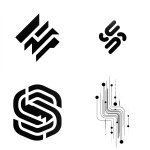

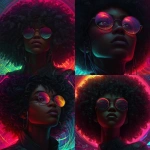


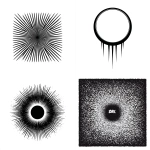



](https://images.ai-img.art/thumbnails/150/cc8f7b8338e849e1e11a902ac51eda96c8f710e5d829c5b4d57b56fa05d28e95.webp)



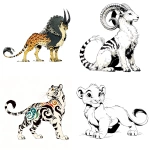

](https://images.ai-img.art/thumbnails/150/8884a7a8953b23d6c882f33524c10e09d320bbce4f305f2c7e79c402d82c1760.webp)
](https://images.ai-img.art/thumbnails/150/c04f7210bb9d35279503ff64ad44a9826d6909838f777fb1edd0fdece2ac7c70.webp)

](https://images.ai-img.art/thumbnails/150/78a1311461ccc4b60dd1430d56ee04b3b5612a3145aef0a32196168d5489fdf3.webp)


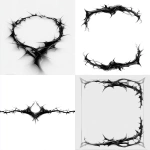
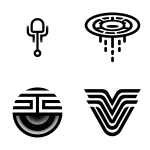

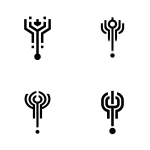
](https://images.ai-img.art/thumbnails/150/45d068cbdc39002eccc21e2169438a3c142426219fda8c9e027c536cdf66811e.webp)

](https://images.ai-img.art/thumbnails/150/4d725f4d5380eb583bdebf0aad4c789acd6782398b4050f01f350a939dd4c2af.webp)



](https://images.ai-img.art/thumbnails/150/03de477e462377e62b34fea23ab1cbf6d4557f4077cc8bed9f23388af1200721.webp)